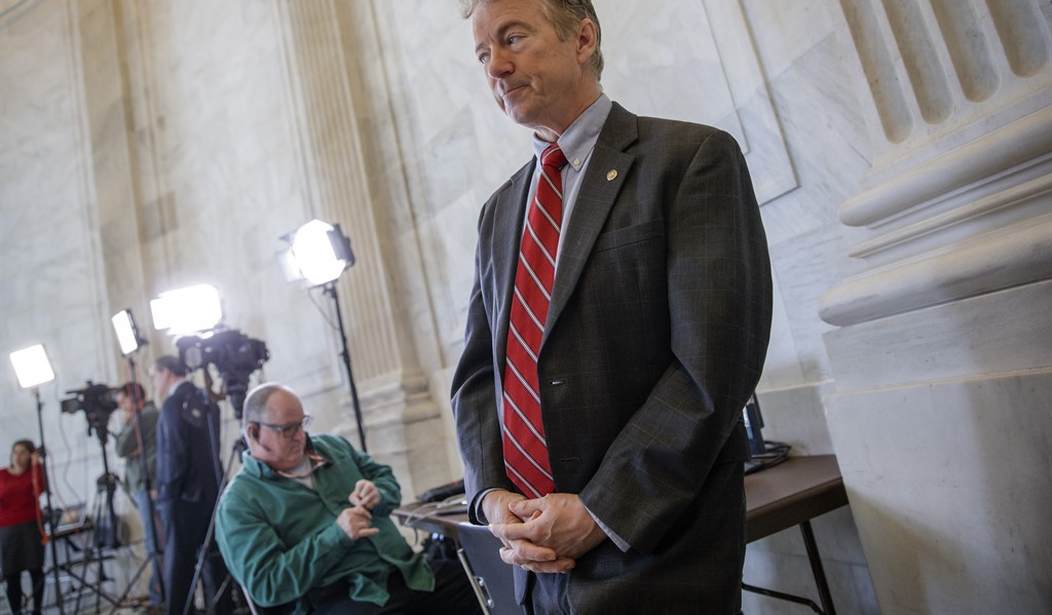The failed House Republican American Health Care Act (AHCA) was always a work in progress. The three-phased approach to reform health care called for passage of the AHCA to repeal the Affordable Care Act (ACA) taxes and mandates; and slow the growth in Medicaid as (i.e. phase one). Phase two was the selective removal of Obamacare regulations by the Secretary of Health and Human Services. Phase three was to be a forthcoming health care bill to revamp onerous insurance regulations.
Passage of the AHCA (the Obamacare repeal bill) would have resulted in numerous benefits – getting rid of the individual and employer mandates, stopping the open-ended exchange subsidies and the huge expansion of Medicaid that will bankrupt America over time, are but a few.
However, it had its shortfalls. One misguided provision was the Managers Amendment, which would not allow Americans to use any part of their tax credits to fund Health Savings Accounts (HSAs). Instead of being able to use a portion of their tax credit to pay for doctor visits, prescriptions, and OTC drugs, Americans would only be allowed to use their credits towards insurance. This was a big mistake for a variety of reasons. Purportedly the amendment disallowing tax credit to fund HSAs was designed to appease those who do not want anyone using their tax credit for an abortion. Of course, this same rule would have also prevented Christian health sharing ministry members from using the credit towards their and fellow members’ medical care.
Tax credits were a sticking point for some conservative Members of Congress. A tax credit for those who lack employer coverage is the right thing to do politically, however. Higher-income workers get huge subsidies through the tax code for employer coverage, so it’s hard-hearted to tell moderate-income people who lack employer coverage they get nothing. A tax credit is also an opportunity to give millions more Americans an HSA. If the credits were automatically deposited into individuals’ HSAs, they could be used for health insurance premiums, copays, cost-sharing and to pay directly for care.
Recommended
If allowed to do so, Americans may even decide to forgo health insurance coverage and use the entire credit/HSA to pay directly for medical care. That provision allowing this should be included in any future bill. For well over half the population, an HSA with $2,000 to $4,000 would be sufficient to fund their entire annual health care needs in cash.
Consider this: the goal of Obamacare was to get as many healthy people into the insurance market as possible to subsidize the money-losing enrollees with pre-existing health conditions. That’s why I say Obamacare is a bad deal for most Americans by design. As a result of the high Obamacare premiums, millions of Americans now have health insurance coverage with deductibles so high that their health plan pays little if any of their routine medical bills. Yet all plans are required have no annual limits or lifetime limits on benefits. Stated another way, people are required to buy expensive health coverage that is not expected to pay for their own care; rather it’s designed to pay for someone else’s catastrophic medical needs. There is nothing wrong with pooling risk, but Obamacare goes far beyond pooling risk and instead coercively redistributes wealth from young to old; healthy to sick.
The key to reining in runaway health costs is not to boost coverage to more and more people as Obamacare tried to do. The key to slowing the growth in health care spending is to make more and more people care more about their medical spending. To this end, it would actually be better for the health care system if millions of Americans decided to forgo insurance, dropped coverage and used their tax credit/HSAs on direct primary care. That is something that most policy analysts fail to understand. Increasing comprehensive health insurance coverage does not reduce health care expenditures (it increases spending). Rather, starving the beast does reduce expenditures. To that end, another good idea is to revamp the essential health benefits required in all plans. It cannot be done through budget reconciliation along, but some experts believe that Secretary Price has the authority to tweak these provisions. Secretary Price already has the power to drop the appeal of House vs. Price (formerly House vs. Burwell) that found the ACA’s cost-sharing subsidies are illegal because they have not been appropriated by Congress. Dropping the appeal would stop the government from paying Obamacare’s illegal cost-sharing subsidies, which would likely cause insurers to pull out of the market unless changes were made. That too would put pressure on Congress to find a solution to the stalemate that exists on reforming insurance regulations. These are the regulations that make Obamacare premiums so expensive.
The Republicans in the House need to use their brains and grow a spine. Obamacare is collapsing. All that will prevent the collapse is either: 1) Huge budget-busting taxpayer subsidies until the end of time; or 2) reforming the insurance markets, which Democrats are loath to do. Congress needs to get back to work on a new health reform proposal. While that is in progress Secretary Price should continue with Phase Two (tweaking regulations), which might lead to a sound health reform.

























Join the conversation as a VIP Member